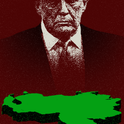Today, for the first time in French history, it will be illegal to wear the burqa, or full-length Islamic veil, in public. Predictably, as an Englishwoman I have mixed feelings about this law. On the one hand I agree with Sarkozy’s former minister, Fadela Amara, who, like the majority of her fellow French Muslims, objects to the burqa as a symbol of religious extremism and patriarchal oppression. On the other, I believe that laws targeting religious practices ought only to be considered if they represent a threat to individual or public safety.
My first instinct in moments such as these is to ask my French-born children what they think. My 23 year-old daughter sees me coming. “My opinion,” she begins, “is quite radical. And quite French.” (She approves of the ban.) “When I see a woman walking down the street in a full veil I immediately picture the husband who is making her wear it.” Behind the burqa my daughter sees a life of ostracism and male domination. My son is also for the ban. “The form of Islam that suggests a woman’s face must be covered in order to preserve her decency implies that women are intrinsically indecent, an idea that is not only disgusting but contrary to the fundamental values of this country.” I can understand both these positions. The trouble is, I’m deeply suspicious of the motives behind this new legislation.
Unlike the law of 2004, which banned the Islamic headscarf (hijab) in French state schools, the wording of this new law is deceptively simple. “No one may, in a public place, wear a garment designed to conceal the face.” No mention this time of religion, or values, or of that sacred cow, la laïcité, The government campaign surrounding the ban has been purposefully ambiguous and designed to suggest that this is not so much about Islam or French identity as it is about some undefined form of practicality. The campaign slogan, "La République se vit à visage découvert” can only be loosely translated into English as, “We live the Republic with our faces uncovered/without a mask.” It is not surprising, then, that a list of exemptions to the law are being drawn up: motorcycle couriers, carnival revellers and people with bird flu will all be exempt. (But one cannot help wondering about cases like Lady Gaga...)
Recent events, however, suggest that this diplomatic language is merely a cover for the government’s true intentions. Ever since June 2009, when president Sarkozy announced that “the burqa is not welcome in France,” he and his party have adopted a discernible strategy of political harassment of the Muslim community, all of it designed to win votes from the extreme right. After launching, in November last year, a public debate on the rather nebulous question of French national identity, Sarkozy cut to the chase in February this year when he announced a new, even meatier debate on the place of Islam in France. Strong in the knowledge that 42 per cent of French people now believe Islam represents a threat to the nation, and knowing that the burqa is worn by only a tiny fraction of France’s Muslims (about 2000 women), Sarkozy clearly believed he could use this law to whip up yet another wave of anti-Muslim sentiment without getting burned.
It now appears Sarkozy’s gamble has misfired. In seeking to occupy and thereby legitimise the ideological ground of the extreme right, he now finds himself neck and neck with Marine Le Pen in opinion polls for the 2012 Presidential elections. Alarmingly, a recent poll foresees the head of the National Front knocking him out in the first round. Sarkozy’s strategy to gather a consensus around the febrile issue of French identity has worked. But the consensus favours the extreme right, rather than his own party.
The place of Islam in this country will indeed lie at the heart of the next year’s elections, but fermenting mistrust towards Muslims is unlikely to result in their jubilant desire to live the republic to the full and cast off their veils. Nor, judging by recent polls, is it likely to boost Sarkozy’s dire approval ratings, which reached a new low of 32 per cent last month. On this, at least, the president’s friends and enemies should be able to agree: when it comes to Sarkozy’s stance on Islam, it is time for a re-think.
Playing with fire
April 11, 2011











